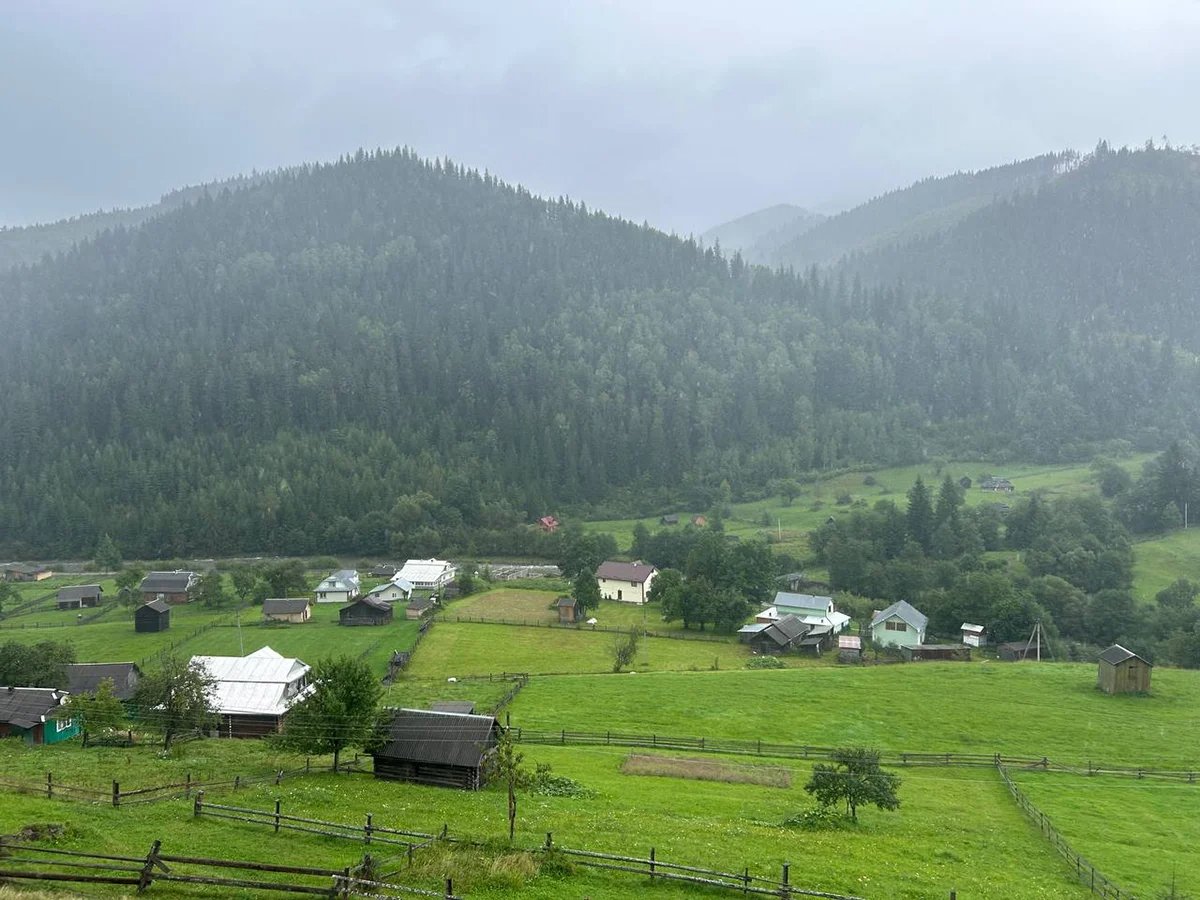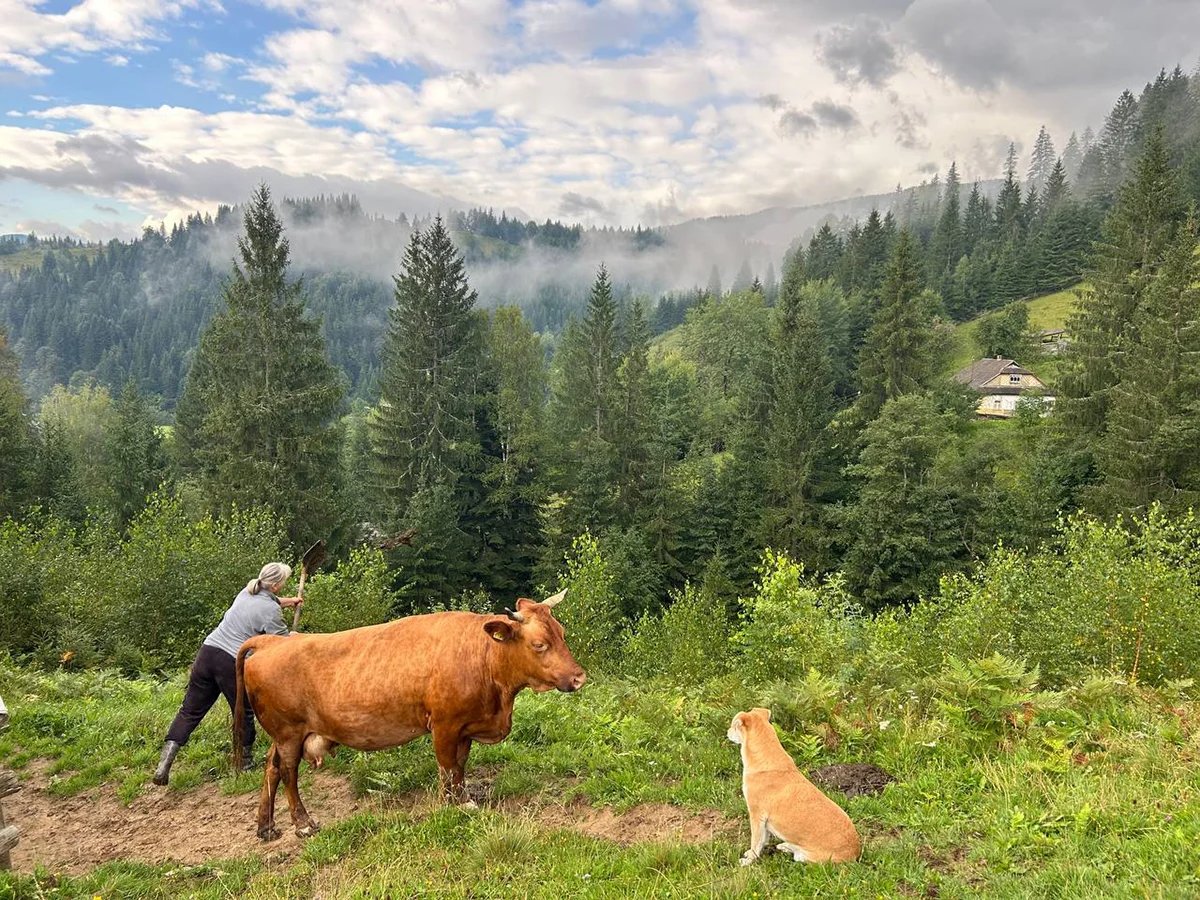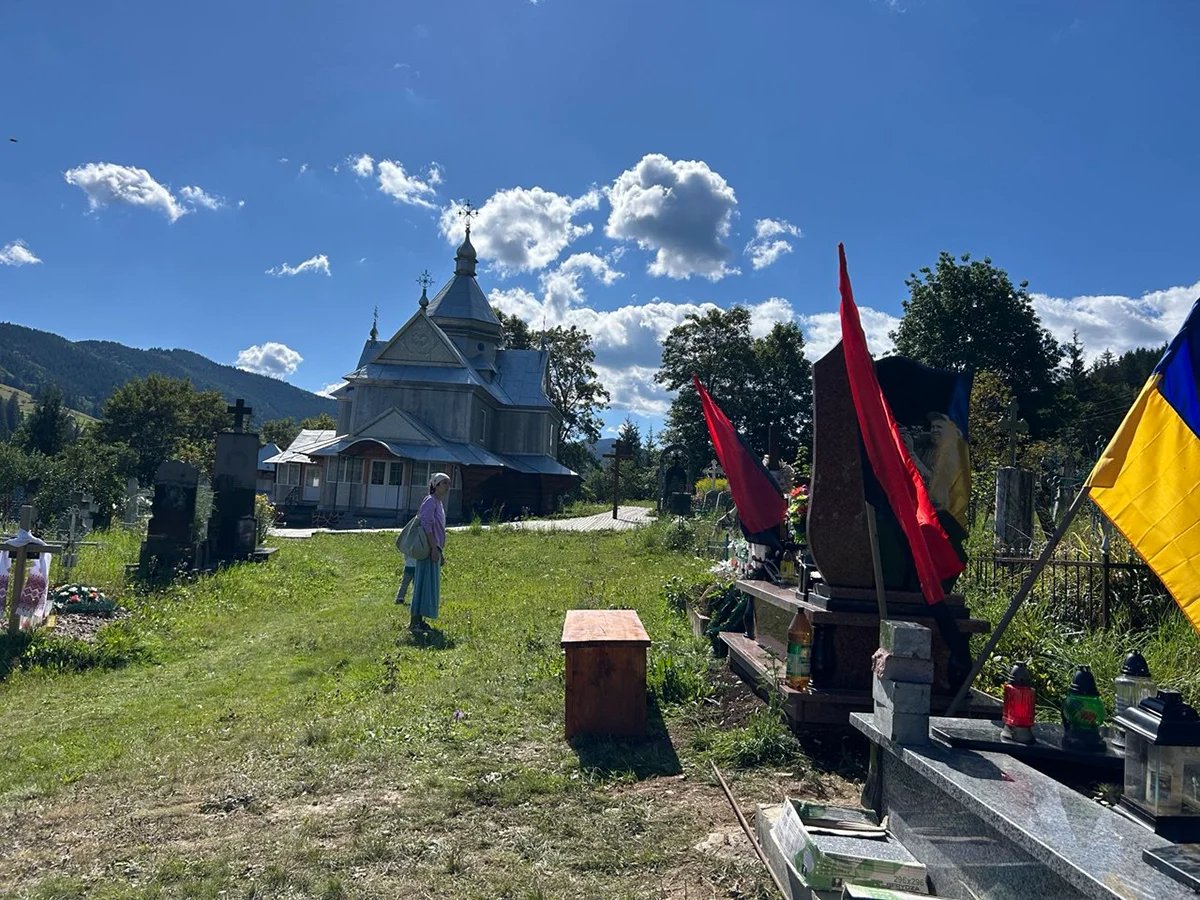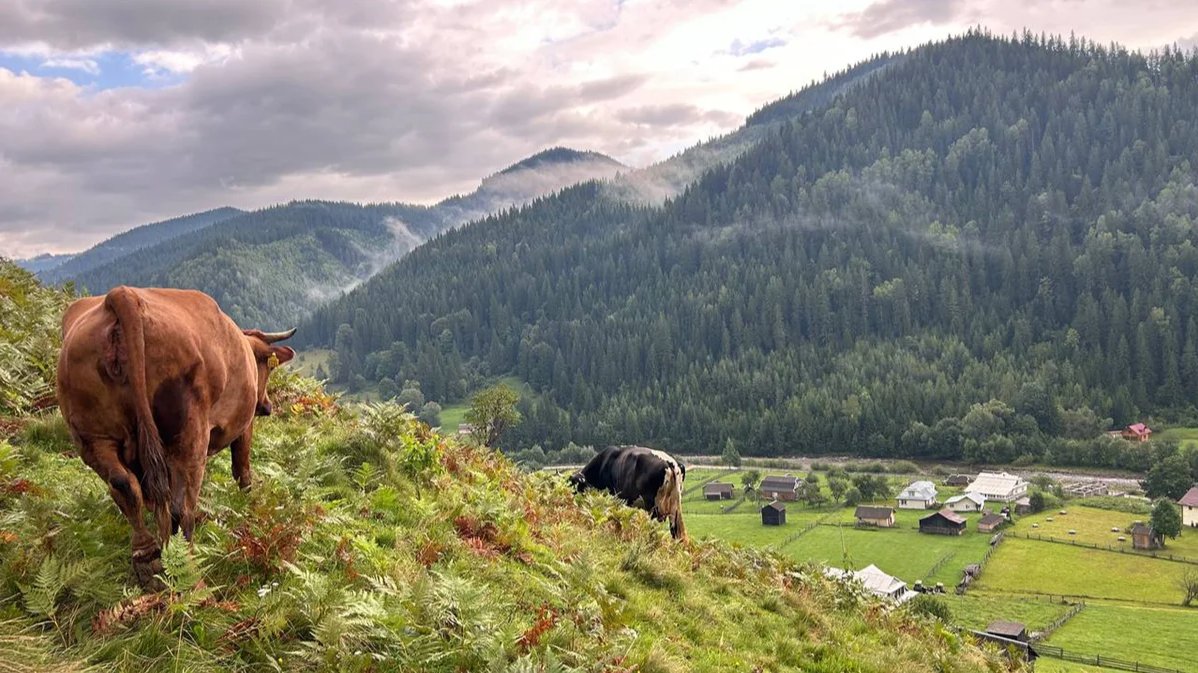The remote mountain village of Zelene for much of the time feels as if it dwells in the clouds. Each morning, thick fog rises from its dew-heavy grass to mingle with the clouds hanging low in the sky above, making it impossible to discern where one ends and the other begins.
Situated a few kilometres beyond the last border checkpoint before the Romanian border in what is technically Ukraine’s western Ivano-Frankivsk region, Zelene, once visited mainly by hikers and nature lovers keen to get out into the surrounding wilderness, has in recent times been attracting Ukrainian men hoping to make it overland into Romania as they flee military service.
Since the Russian invasion began in February 2022, draft-age Ukrainian men — now between 22 and 60 — have been barred from leaving the country, which has meant that those determined not to fight have little choice but to abscond to a third country. Locals call those who come here hoping to cross into Romania “runners”.
Running for the mountains
“Let’s go and pick up the runners,” says Mykhaylo Kumlyk, my local host, who explains that there are all sorts of camera traps hidden in the thick forests that surround Zelene. “Draft dodgers show up on the cameras and tell the local border guards all they need to know — where and when they’ll end up and where they should go to catch them.”
The villagers are largely Hutsuls, an East Slavic ethnic group native to western Ukraine and northern Romania, who normally earn money ferrying tourists around and guiding groups of travellers into the local wilderness. Beyond the village, it’s a 10km straight shot to Romania, which begins on the far side of the next mountain.
But the appearance of “runners” in and around the village has not gone unnoticed by its inhabitants. “They make a lot of mess in the mountains, leave a lot of garbage. And there are plenty of them. We catch a couple a day in the summer,” one border guard at the checkpoint in the town of Bystrets tells me.
“They don’t know where they’re going. Sometimes they’ll just take a bottle of water with them, wearing their trainers, and head off into the mountains,” he says. “They think it’s 20km — a day at most — but in the mountains you have to multiply everything by five!”
There have been deaths too. In December, border guards found the bodies of two men who froze to death while attempting to cross into Romania during the height of winter. Many other men have had to be rescued while attempting to cross the border.
Before crossing the border itself, runners typically dump their backpacks and any other equipment or supplies they have with them such as their tents and sleeping bags, preferring to travel light with just their documents and some cash in their pockets.

The village of Zelene, in western Ukraine. Photo: Dmytro Durnev for Novaya Gazeta Europe
A runner appears
Every morning and evening, the women of Zelene hike some 500 metres or more into the mountains to milk their cows, usually wearing high rubber boots to protect themselves from the many different poisonous snakes in the area.
One day, I joined one of them, Halyna Zelenchuk, on a six-hour round trip to milk her cows and collect mushrooms. As we walked, she told me about some of the things she comes across on her daily errands, including 4 metres of thick polyethylene she found under an abandoned tent, which she now uses to cover the hay for her cows.
“If I’m up on the mountain, and a runner appears, I can spot him immediately from the way he’s dressed and how he looks after a week in the mountains,” she says. “But I’m not afraid and I walk on.”
Locals know the routes the runners use as well as the spots where they most frequently get lost.
“One followed me down to my house and asked me for food, telling me he had been picking mushrooms. I gave him bread and salo. As his phone battery was dead, he asked me to call his sister to ask her to send him a parcel to the local post office.”
Three hours after she helped that particular runner out, Zelenchuk received a phone call from the police asking who the draft dodger she’d taken into her home was, and where he had gone afterwards. Apparently, her guest had told everyone he met in the village that he had been fed by a kind woman with a big dog.
The following day, the runner returned to the house, only to receive a far less hospitable welcome from her stern husband, Vasyl, who had already heard about his visit the previous day. “Why is he hanging about, mouthing off to everyone!?” Zelenchuk asked his sister when she called him. “We’ve all had enough of him! He’s been wandering around the mountains for over a month and still hasn’t crossed the border,” came her reply.

Halyna Zelenchuk with her dog and her cow. Photo: Dmytro Durnev for Novaya Gazeta Europe
Mobile service is erratic in Zelene, and can often disappear for days at a time, so attempting to use Google Maps in real time to get across the border is guaranteed to cause problems. Nevertheless, locals know the routes the runners use as well as the spots where they most frequently get lost. Though there are some villagers willing to guide runners through the wilderness, it’s a dangerous activity, as they run the risk of being identified by the forest camera traps and getting into trouble with the police.
Usually, runners end up in Zelenke after planning their own routes on Google Maps. Others purchase well-planned routes online that have been prepared by others and, in some cases, they later sell their own successfully negotiated routes on to others, updating, refining and repackaging a route that was originally created by somebody else.
Above all, these entrepreneurs warn those planning to follow in their footsteps to make sufficient physical preparation for the hike across the border. One runner who now lives abroad told me that at least three months of hard work at the gym is required to get into the right kind of physical shape for such an undertaking, adding that all potential runners also need a warm jacket and a power bank for their phone.

The Zelene village cemetery. Photo: Dmytro Durnev for Novaya Gazeta Europe
Zelene’s own war dead
Though runners now frequently pass through the village on their quest to flee the country, Zelene has its own war dead, the graves of whom can be found in the village cemetery next to the church. “In 2022, there were about 200 people from the village in the war. Many have now returned, and stopped fighting after being wounded. Five died,” says Father Mykola, the local priest.
Zelene has also had its own share of runners, I’m told — it’s far easier for locals who know their way through the surrounding landscape to navigate their way into Romania. Everyone here knows everyone else by name, and the three local runners are no exception.
“I think that they are driven by fear … I think they’re afraid of war, mobilisation. Why else would they do it?”
Next door to Zelenchuk lives her mother-in-law Vasilina, in a large and well-kept wooden house. In 1950, when she was a young girl, Vasilina and her family were deported from Zelene to Siberia by the Soviet authorities. They spent eight years living thousands of miles away, and were only permitted to return to Ukraine in 1958.
“We weren’t allowed to return to where we lived. We could go anywhere else in Ukraine, but not back here. But mum and dad couldn’t imagine any other life. They’d spent their whole lives here, and we returned to the village nevertheless,” she recalls. Her father was imprisoned for three months for ignoring the order to move elsewhere, but his family has remained in Zelene ever since.
Now aged over 80 years old, Vasilina is no longer able to go mushroom picking in the highland meadows as her joints ache too much, so she leaves that to her son and daughter-in-law. The strangers who now regularly pass through the area she calls home do cause her some concern however, and she says she finds them regularly on her mind.
“I think that they are driven by fear … I think they’re afraid of war, mobilisation. Why else would they do it?” she tells me, before adding: “It makes you wonder. Maybe it’s better to go and fight and at least die some kind of normal death?”
Join us in rebuilding Novaya Gazeta Europe
The Russian government has banned independent media. We were forced to leave our country in order to keep doing our job, telling our readers about what is going on Russia, Ukraine and Europe.
We will continue fighting against warfare and dictatorship. We believe that freedom of speech is the most efficient antidote against tyranny. Support us financially to help us fight for peace and freedom.
By clicking the Support button, you agree to the processing of your personal data.
To cancel a regular donation, please write to [email protected]

